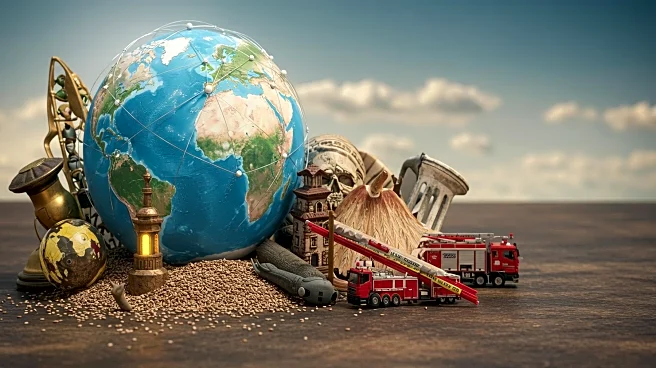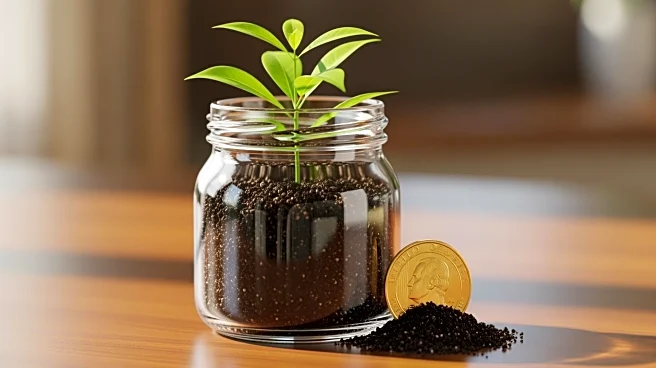What is the story about?
What's Happening?
Prime Minister Narendra Modi has called for increased self-reliance in India, particularly in response to tariffs imposed by U.S. President Trump. During his Independence Day speech, Modi emphasized the importance of producing domestic goods, including fertilizers, jet engines, and EV batteries. He announced a reduction in goods and services taxes (GST) starting in October to boost consumption. Modi's speech comes at a time when India faces challenges due to U.S. tariffs and stalled trade talks, primarily over American farm and dairy imports. Modi assured protection for farmers, fishermen, and cattle rearers, stating that India will not compromise on their interests.
Why It's Important?
The tariffs imposed by President Trump pose a significant threat to India's economy, particularly its export sectors like textiles, footwear, and jewelry. Modi's push for self-reliance is crucial as it aims to mitigate the impact of these tariffs and strengthen India's economic independence. The reduction in GST is expected to stimulate domestic consumption, potentially offsetting some of the negative effects of the tariffs. This development highlights the ongoing global trade tensions and the need for countries to adapt to changing economic landscapes. India's focus on self-reliance could lead to increased domestic production and innovation.
What's Next?
India's efforts to become more self-reliant may lead to further exploration and development of critical minerals and semiconductor production. The government is likely to continue advocating for 'Swadeshi' products, encouraging local businesses to prioritize made-in-India goods. The collapse of trade talks with the U.S. suggests that India may seek alternative trade partners or strategies to protect its economic interests. The Indian Foreign Ministry has expressed hope for improved relations with the U.S., indicating potential diplomatic efforts to resolve trade tensions.
Beyond the Headlines
Modi's emphasis on self-reliance reflects a broader trend of countries seeking to reduce dependency on foreign imports amid global trade uncertainties. This shift could have long-term implications for international trade dynamics and economic policies. The call for self-reliance also raises questions about the balance between globalization and national economic strategies, as countries navigate complex trade relationships.

















